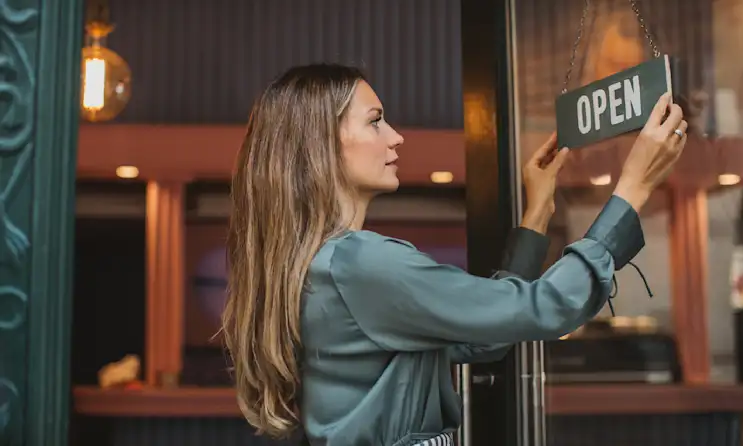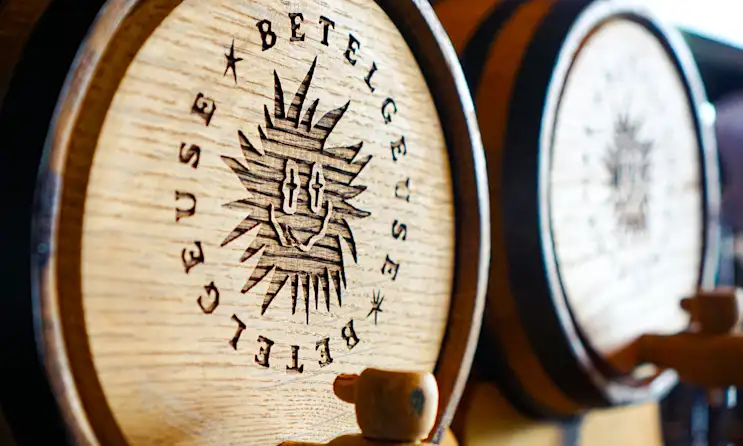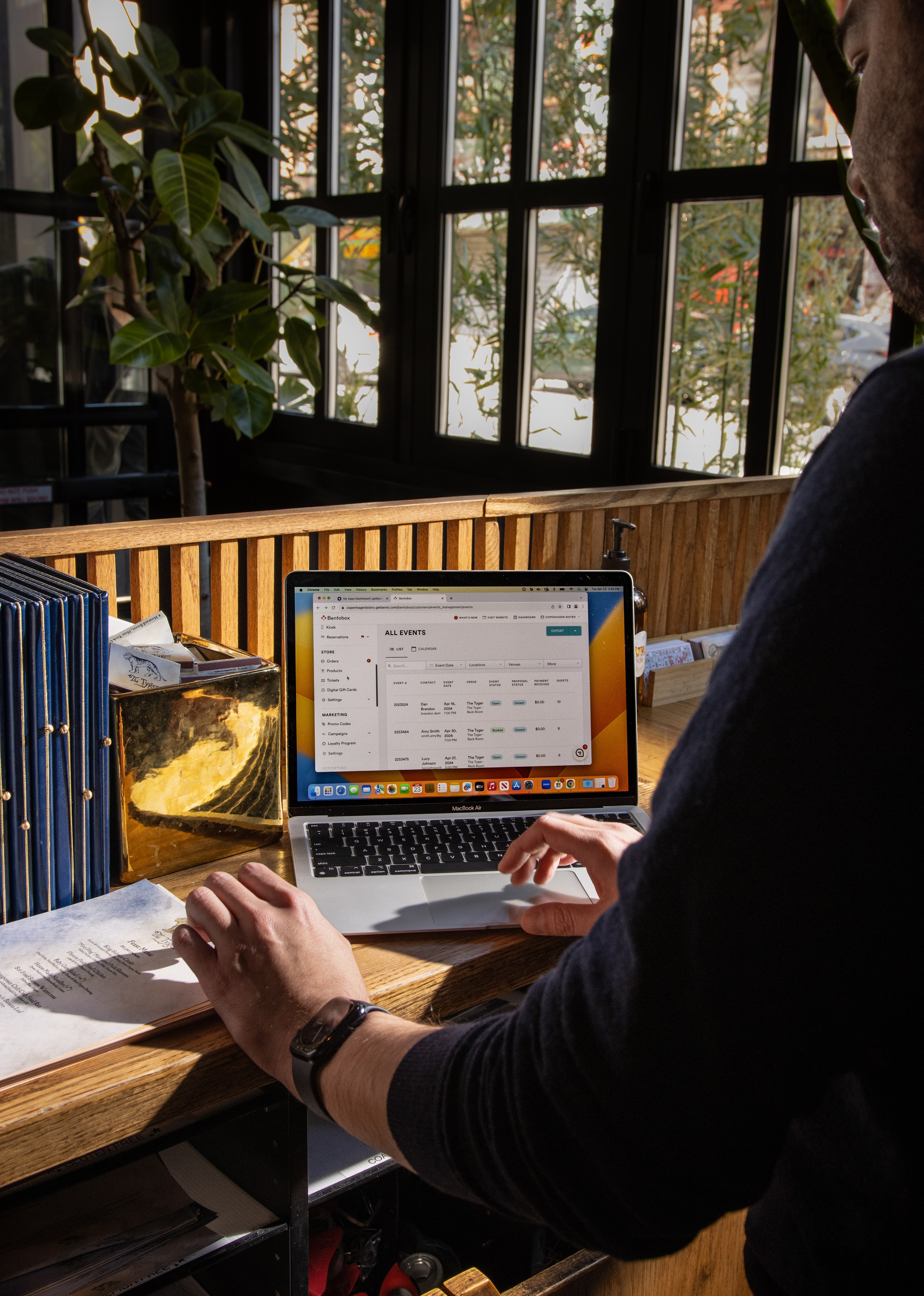New Openings
How to Get a Liquor License in Illinois
July 27, 2022
Illinois regulates at both the local and state level. Here’s what you need to know in order to successfully secure a liquor license.
Disclaimer: This information is not intended to be legal advice. Contact your attorney or state authority if you have questions about compliance. Last Updated: July 2022
The Illinois Liquor Control Commission is the state authority that handles licenses, inspections, compliance and violations for liquor regulation. Its Licensing Division issues nearly 28,000 state liquor licenses each year, most of which are renewals. In fact, only about 10% of approved liquor licenses are new. It’s worth noting that liquor licenses are regulated at both the state and local level in Illinois. Whether you need a liquor license in Chicago or you’re searching for licensing in Aurora, you’ll secure a license through your local municipality first before submitting your application to the state. This guide will give you an overview on the different types of liquor licenses, explain how to submit an application and share best practices on how to keep your license once secured.
Types of Liquor Licenses
In the state of Illinois, there are 21 types of liquor licenses. There's a Distributor License, a Manufacturer License and even things as granular as a Craft Distiller Warehouse License.However, as a restaurant or bar, the one you need is a Retailer Liquor License. This covers the sale of liquor on-premises only. See a full overview of applications available.

RESOURCE
The Chicago Restaurant Worker Report
Learn how Chicago's restaurant workforce is growing and how to attract more workers.
How to Apply for a Liquor License in Illinois
Ready to take the first step in navigating the alcoholic beverage waters? We’ve got your back. Follow these four tips for an easier journey.
1. Secure your local liquor license first
Remember, Illinois liquor licenses are regulated at both the local and state level, and you need to begin with your city’s applications before you can receive your state liquor license. Once you have your local license locked down, you can move to step two.
2. Gather your required documents
You’ll need a few key pieces of information to support your state application. Do yourself a favor and compile these materials before starting the process. It will make the process much faster and easier (and minimize as much stress as possible). Grab a manila envelope or your favorite folder and stuff these things inside:
Photocopy of current local liquor license
Photocopy of Certificate of Insurance (not the policy declaration)
Proof of Purchase (e.g., bill of sale, closing statement, lease, recorded deed)
Federal Employer Identification Number (FEIN)
8-digit Illinois Department of Revenue Sales Tax Account ID
Ownership information (Full name, home address, city, state, ZIP Code, Social Security number, date of birth, sex, title/position, home telephone number, and percentage ownership).
One important note on ownership information: You may need those details for multiple people. The license requires separate details for each of the following:
An individual applicant, sole proprietor, partner, corporate officer or director
Any shareholder owning in the aggregate stock equal to or more than 5%
Any manager or agent conducting the business
3. Fill out a Retailer Liquor License application
Fill out the six-page application, send along the documents from above and write a check to cover the $750 fee that’s made payable to ILLINOIS LIQUOR CONTROL COMMISSION (ILCC). You have two choices when sending in your application, supporting documents and payment:
Send via email through LCC.Licensing@illinois.gov.
Mail to one of the addresses below:
Illinois Liquor Control Commission
50 W Washington St Suite 209
Chicago, IL 60601
OR
Illinois Liquor Control Commission
300 W Jefferson Suite 300
Springfield, IL 62702
4. Allow 3-10 business days for processing
It may take up to five business days for staff at the Illinois Liquor Control Commission to review your application. Be patient! They’re closely reading the application itself, making sure payment is included and reviewing all of the documents you carefully gathered. If you’ve sent your information via mail, budget a few extra days for it to reach its destination.
How Much is a Liquor License in Illinois?
Liquor licenses can be costly! For a Retailer Liquor License, you should expect to pay a $750 application fee. Find more information on fees here.

RESOURCE
How to Open a Restaurant [Free Guide]
A step-by-step guide to planning, financing, staffing, stocking and marketing a new restaurant for its debut.
What to Do to Keep Your Liquor License
1. Complete a BASSET certification
BASSET stands for Beverage Alcohol Sellers and Servers Education and Training. This is mandatory for any on-premises workers who check identification such as servers, bartenders and security. A certification class must be completed every three years, and employees must receive their certification within 120 days of being hired.
The four-hour training covers the physical properties of alcohol, techniques for preventing overconsumption, intervention tactics for keeping intoxicated drivers off the road and tips for properly checking ID cards.
While only those who check IDs are required to be certified, some insurance companies will reduce your liquor liability if all staff members go through BASSET training.
There are 200+ licensed BASSET providers throughout the state of Illinois. You can take a class in-person (see a list of upcoming BASSET classes), or take an online course through the ServSafe Alcohol® Program.
2. Watch this training video
Outside of the formal BASSET training, this four-minute video can be a great resource for team members who don’t get certified. You’ll see a handful of scenarios acted out, along with prompts for staff to talk through how to handle difficult situations. The video can be incorporated into onboarding at your restaurant to keep all employees informed and empowered.
3. Understand rules around “Happy Hours”
You can offer discounted alcoholic beverages for up to 4 hours per day (which does not need to be consecutive) and no more than 15 hours per week. Additionally, you must give notice of the discounted drinks on-premises or online seven days prior to the promotion. Be mindful that there are no drink promotions allowed between 10pm and closing. Head here for Happy Hour FAQs.
4. Read through the Licensee Informational Packet
The Licensee Info Kit is a fantastic resource for new licensees — and even seasoned ones. You can order a physical copy (which will be mailed to you) or access it online. The packet includes past ILCC newsletters, posters/signage, BASSET materials and more.
5. Post the required signage
As a Retailer Liquor License holder, you’re required to post the following signs around your establishment:
Liquor License
Illinois Business Tax (IBT) Certificate
These materials need to be framed and hung in a visible area. Behind the bar or at the POS center are popular places for hanging them. Local regulations may also require a “Proof of Age” sign and your local liquor license.
6. Remember to renew
Liquor licenses in Illinois need to be renewed every year, and licensees are encouraged to do so through the Illinois Liquor Control Commission (ILCC)’s online account management system, MyTax Illinois. If you renew through MyTaxIllinois, you get a reduced renewal fee. If you’d still prefer to renew via mail, you can use a paper application. How will you know when it’s time to renew? You’ll receive an email reminder 45 days prior to your liquor license’s expiration date. Renewals generally need one to five days to process, so make sure you budget time.
Additional Resources for Illinois Restaurants
Quick Links
Recommended

New Openings
14 Types of Restaurants to Consider Opening
October 5, 2023
An overview of different restaurant concepts and what to know about them.

Marketing
22 Best Restaurant Logos to Inspire Your Design
January 11, 2023
Take a look at successful restaurant logo examples, and read about why they work.

New Openings
How to Get a Liquor License in California
August 2, 2022
Everything restaurants need to know about serving alcohol in the Golden State.

